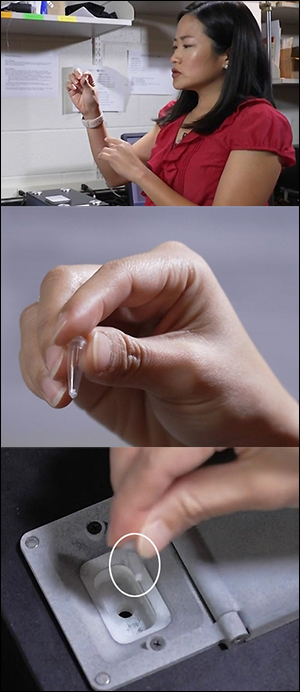Vanderbilt engineers are working on a process that ultimately may allow patients to get blood test results fast.
The process involves automating the duplication process of a person’s DNA to bring DNA levels up to the point where they can be detected.

Identified by Mindy Leelawong, biomedical engineering research assistant professor, unconventional dyes eliminate certain critical processing steps when it comes to testing blood samples.
“Blood is one of the hardest materials to work with because you have so many inhibitors that are present within blood,” Leelawong said.
In the field, the blood sample from the patient is collected and shipped to a laboratory to extract the DNA for testing, which can take hours or even days.
Researchers are now working with the dyes and a process called adaptive polymerase chain reaction, or PCR.
“We can actually bypass that entire process and instead be able to perform the test right now on the ground,” Leelawong said.
When the dye mixes with the blood, it allows the testing to be done directly on the blood sample instead of extracting the DNA.
“They’ll just take a sample out, add water, add the patient’s sample and then basically put it into the machine and then press start,” said Christia Victoriano, a biomedical engineering undergraduate student.
Leelawong has studied this technique on malaria and believes that same technique can be applied to other diseases.
“So some examples you can think of might be HIV or hepatitis viruses,” Leelawong said. “What I would really like to happen and see happen is to have these tools available to everyone, no matter where you’re located, no matter how remote your patients.”
Right now, the adaptive PCR is the size of a shoebox, but Leelawong and her team are working to make it even smaller. They are designing a device that can fit in the palm of your hand.
Source: KSAT, Ivanhoe
Read more: BME team develops quick DNA test for malaria drug resistance June 13, 2019